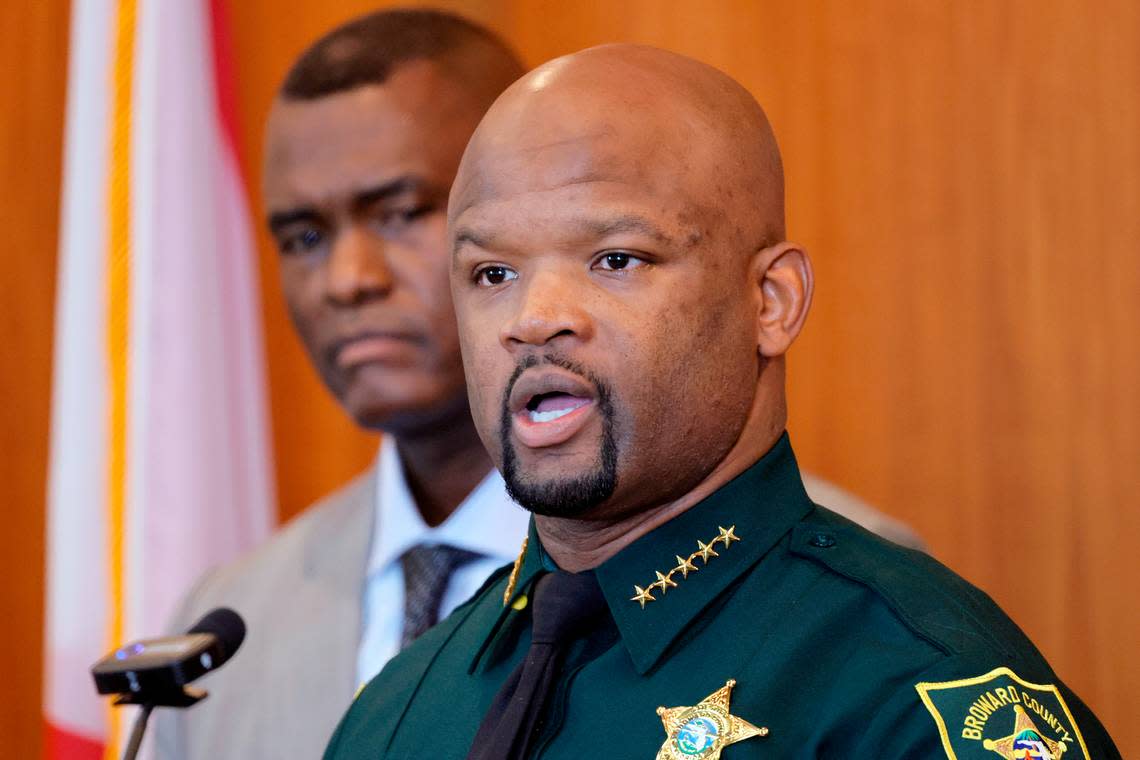Ex-BSO deputy found guilty of ripping off pandemic loan program, one of 17 charged in agency

The first of 17 Broward Sheriff’s Office employees to face trial on charges of bilking a business loan program during the pandemic was found guilty Tuesday of committing fraud by a Fort Lauderdale federal court jury.
Stephanie D. Smith, a former BSO deputy school resource officer, was convicted of submitting falsified loan applications for two companies through the federal Paycheck Protection Program and fraudulently collecting more than $31,000 that she spent on herself, the jury found.
Smith, 53, of Sunrise, now faces up to 20 years in prison on each of two wire fraud convictions at her sentencing before U.S. District Judge James Cohn. She remains free on bond following her federal trial, which began last week.
In 2021, Smith applied for loans as the registered agent for Childrens 1st Basketball Training Inc. and as the manager for Agape Smith Vending LLC, providing bogus payroll, revenue and tax records to a couple of banks that were handling her applications under the PPP loan program, the jury found. On April 1, Childrens 1st received $20,863 in a loan guaranteed by the Small Business Administration, and on May 11, Agape received $10,275 in a second loan also guaranteed by the SBA.
Smith, the sole proprietor of both Broward-based businesses, then fabricated information to show that she used the loan proceeds for her companies’ payroll and other purported legitimate expenses when, in fact, she spent the money on herself, according to prosecutors with the U.S. Attorney’s Office in Fort Lauderdale.
In October, Smith was among the group of BSO deputies and corrections officers arrested on charges of fraudulently receiving about $500,000 from the Paycheck Protection Loan and Economic Injury Disaster Loan programs. Both programs were approved by Congress as part of the CARES Act after the COVID-19 pandemic swept the nation in March 2020.
‘Theft from the American people’
Although the total amount of lost loan money was relatively modest compared to dozens of other COVID-19 relief fraud cases in South Florida, the sheer number of law enforcement officers charged with breaking the law in one police agency stood out as shocking, authorities said. Twelve of the original 17 accused of defrauding the PPP loan program have pleaded guilty since their arrests in October. Those sentenced so far have been ordered to pay back their ill-gotten loan proceeds and have received probation ranging from one year to five years.
Gregory Tony, the BSO sheriff, described the systemic offense as “theft from the American people.”
He said that the investigation began in late 2021 with a probe of a single deputy and evidence from that case led to an evaluation of the entire 5,500-employee agency. He said the internal probe found that 100 deputies and corrections officers applied for COVID-19 business loans, and a referral was made to the FBI and U.S. Attorney’s Office.
Of those, FBI agents found that 17 BSO employees broke the law by falsifying information about their businesses so they could qualify for the pandemic relief loans.
“I hated to see some of the names on that list,” Tony said during a news conference at BSO’s headquarters after the arrests. “Some of them were good officers.”
The crackdown on the BSO employees was led by the FBI and other federal agencies, along with prosecutors Marc Anton, Trevor Jones, David Snider and Bertha Mitrani.
South Florida has been a hotbed of PPP loan fraud committed by hundreds of business people and others charged with stealing millions from the government program by falsifying loan applications for their companies, including falsified employee, revenue, income and tax records. Several used their ill-gotten loans to buy expensive Lamborghini, Tesla, Porsche, Mercedes Benz and Bentley automobiles
The Paycheck Protection Program allocated about $800 billion in loans through banks that were entirely guaranteed by the Small Business Administration and, in almost all instances, forgiven as long as the money was used for payroll and other legitimate overhead costs, according to the SBA.

